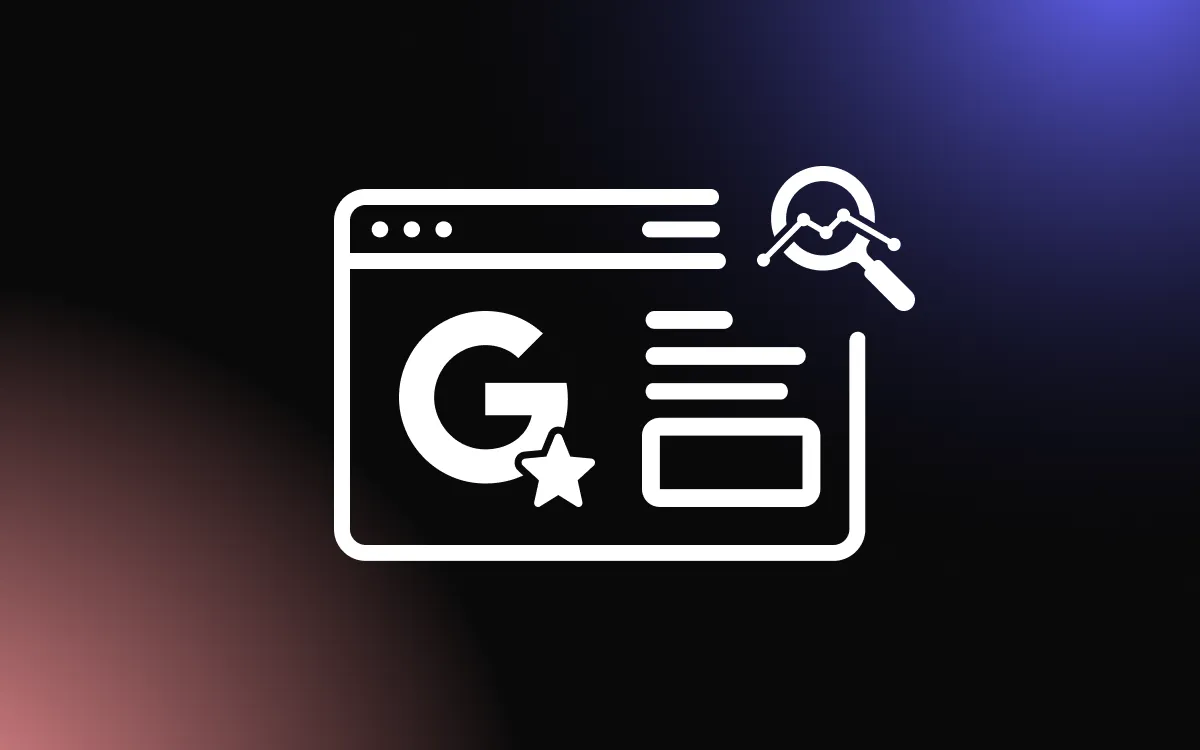
Customer Relationship Management (CRM) software has revolutionized the way businesses interact with their customers, streamlining processes, improving communication, and fostering long-lasting relationships which eventually lead to better engagement and increased conversions.
But with a plethora of options available, finding the perfect CRM solution for your business can feel like searching for a needle in a haystack. You might be wondering: how do I choose the right software that caters to my unique needs, without breaking the bank or overwhelming my team?
If you find yourself nodding in agreement, you’ve come to the right place. In this article, we’ll explore the top CRM software on the market, helping you navigate the sea of options and find the one that fits your business like a glove. Get ready to take your customer relationships to new heights!
What is CRM?

CRM, or Customer Relationship Management, refers to a combination of strategies, tools, and technologies that businesses utilize to manage and assess their interactions with both customers and potential clients. The main objective of CRM is to enhance customer satisfaction, retention, and loyalty by fostering and maintaining solid relationships between a company and its clientele.
A typical CRM system incorporates software that consolidates customer information, monitors interactions and communication, automates sales and marketing operations, and provides reporting and analytical capabilities. This empowers businesses to gain a comprehensive understanding of their customers, recognize trends and patterns, and make well-informed decisions to boost their customer engagement initiatives.
By adopting CRM, companies can optimize their sales and marketing activities, allocate resources effectively, and ultimately increase revenue and profitability. CRM aids businesses in tailoring personalized offers for their customers, pinpointing cross-selling and upselling opportunities, and delivering top-notch customer service.
Why Should You Use CRM Software?

Businesses and organizations across a variety of industries should use CRM if they’re looking to establish and maintain robust relationships with their customers, streamline their processes, and enhance overall customer satisfaction.
Here are a few important reasons why CRM is advantageous:
- Unified customer data: CRM systems keep all customer information in one centralized location, allowing team members to easily access and update relevant details. This ensures everyone stays on the same page and has a clear understanding of the customer’s history and preferences.
- Better communication: CRM fosters smooth communication and collaboration among different teams, such as sales, marketing, and customer support. This guarantees that customers receive consistent information and assistance from all contact points within the organization.
- Elevated customer experience: CRM systems let businesses track and analyze customer interactions, enabling them to deliver personalized experiences and cater to their customers’ needs more effectively. This can result in heightened satisfaction, loyalty, and long-lasting relationships.
- Automated sales and marketing: CRM solutions often come with tools designed to automate repetitive tasks like sending follow-up emails, scheduling calls, or monitoring leads. This not only saves time but also allows teams to concentrate on more strategic tasks and develop stronger relationships with customers.
- Insightful reporting and analytics: CRM software boasts powerful reporting and analytics features that aid businesses in tracking their performance, identifying trends, and making informed decisions. This can lead to more successful marketing campaigns, enhanced sales strategies, and better resource allocation.
What To Consider When Choosing CRM Software?

Choosing the right CRM software is crucial for your organization’s success. Make sure to consider these factors to find the perfect fit for your unique needs and goals:
- Business requirements: Start by pinpointing your organization’s specific challenges in customer relationships, sales, and marketing. List the must-have features that will tackle these issues and support your objectives.
- Integration capabilities: Your CRM should integrate smoothly with your existing tools, such as email clients, marketing automation platforms, and e-commerce systems. Seamless integration means less manual work and fewer mistakes.
- Scalability: Go for a CRM solution that can grow with your business. It should handle more customers, users, and complexity over time.
- Customization: Since every business is different, pick a CRM that lets you customize it to fit your unique workflows and terminology.
- Ease of use: A user-friendly CRM with an intuitive interface will encourage adoption and make your team’s life easier.
- Mobile accessibility: In our fast-paced world, mobile access to your CRM is vital, allowing your team to stay connected with customers on the go.
- Security and data privacy: Choose a CRM that complies with data protection regulations and offers strong security features to safeguard sensitive customer information.
- Customer support and training: Opt for a CRM vendor that provides excellent customer support and training resources, ensuring a smooth transition and ongoing assistance.
- Pricing and budget: Keep your budget in mind, and compare pricing plans of different CRM solutions, taking into account factors like the number of users, included features, and extra costs for integrations or customization.
- Vendor reputation: Do your homework on CRM vendors. Check customer reviews, case studies, and industry recognition to evaluate their credibility and product quality.
The Top CRM Services in 2024
Now that we have discussed the key factors to consider when choosing a CRM service, let’s explore the top CRM services in 2024.
Salesforce

Salesforce is a top-tier cloud-based CRM solution, boasting a comprehensive suite of tools for sales, customer service, marketing, and analytics. Its robust features and scalable platform make it suitable for businesses of all sizes.
Pros: Vast customization options, numerous integrations, and a large user community.
Cons: Can be overwhelming for smaller businesses due to complexity and cost.
Pricing: Starts at $25/user/month for the Essentials plan, with more advanced plans ranging from $75 to $300/user/month.
HubSpot CRM

HubSpot CRM is a fantastic all-in-one platform that’s super user-friendly, perfect for small and medium-sized businesses. It’s got everything you need: marketing, sales, and customer service tools all in one place. One of the best things about HubSpot CRM is their generous free plan, and it’s just so easy to use. Plus, it works like a charm with other HubSpot products. On the flip side, there are a few downsides: customization options and advanced features are limited unless you’re willing to spend more on higher pricing tiers. But don’t worry, there’s a free plan available, and if you want to level up, paid plans kick off at just $45 a month for the Starter tier.
Zoho CRM

Zoho CRM is a powerful, feature-rich solution catering to businesses of all sizes, offering extensive customization options and integrations with other Zoho products.
Pros: Affordable pricing, wide range of features, and robust customization capabilities.
Cons: Steeper learning curve and some limitations on reporting functionality.
Pricing: Starts at $14/user/month for the Standard plan, with more advanced plans ranging from $23 to $52/user/month.
Microsoft Dynamics 365

Microsoft Dynamics 365 is a cloud-based CRM solution that integrates seamlessly with other Microsoft products, offering a wide range of tools for sales, customer service, and marketing.
Pros: Strong integration with Microsoft ecosystem, AI-driven insights, and scalability.
Cons: Can be expensive and complex for smaller businesses.
Pricing: Starts at $50/user/month for the Sales Professional plan, with more advanced plans ranging from $95 to $210/user/month.
Pipedrive

Pipedrive is a sales-focused CRM designed for small to medium-sized businesses, with an intuitive interface and powerful pipeline management features.
Pros: Easy to use, customizable pipelines, and strong mobile app functionality.
Cons: Limited marketing and customer service features.
Pricing: Starts at $12.50/user/month for the Essential plan, with more advanced plans ranging from $24.90 to $99/user/month.
Freshsales

Freshsales is a versatile CRM that combines sales, marketing, and customer service features in a user-friendly interface, making it an ideal choice for small to medium-sized businesses.
Pros: Affordable pricing, AI-driven insights, and a clean, intuitive interface.
Cons: Limited customization options and fewer integrations compared to competitors.
Pricing: Starts at $15/user/month for the Growth plan, with more advanced plans ranging from $29 to $79/user/month.
Insightly

Insightly is a CRM platform that’s tailor-made for small to medium-sized businesses, bringing together a variety of tools to help with sales, marketing, and even project management. The great thing about Insightly is its user-friendly interface, impressive project management capabilities, and budget-friendly pricing. Of course, nothing’s perfect – compared to some competitors, Insightly might lack a few advanced features and its reporting functionality could be more robust. But, with pricing that starts at just $29 per user per month for the Plus plan and more advanced options ranging between $49 and $99 per user per month, Insightly is still worth checking out.
Nimble

Nimble is a social CRM that focuses on relationship management, offering features like contact enrichment, social listening, and a unified inbox for better communication.
Pros: Strong social media integration, easy to use, and affordable pricing.
Cons: Limited advanced features and scalability for larger organizations.
Pricing: Starts at $19/user/month for the Contact plan, with a Business plan available at $25/user/month.
Apptivo CRM

Apptivo CRM is an awesome solution, perfect for small to medium-sized businesses like yours. It covers all your bases when it comes to sales, marketing, and customer service. What’s even better? It’s super customizable, easy on your wallet, and packed with integrations to simplify your day-to-day tasks. But hey, nothing’s perfect – the user interface might not be as smooth as you’d find with other competitors, and setting up some features could take a bit of extra time. Don’t worry, though, there’s a free plan available! And if you decide to go for a paid plan, they start at an easy $10 per user per month for the Premium option, with more advanced plans between $20 and $25 per user per month.
Copper CRM

Copper CRM is a user-friendly CRM solution designed specifically for Google Workspace users, offering seamless integration with Gmail, Google Calendar, and other Google applications.
Pros: Tight integration with Google Workspace, easy to use, and strong focus on relationship management.
Cons: Limited customization options and fewer features compared to more robust CRM solutions.
Pricing: Starts at $25/user/month for the Basic plan, with more advanced plans ranging from $59 to $119/user/month.
Conclusion
Choosing the best CRM service for your business depends on several factors, including integration with other tools and systems, customization options, user-friendliness, mobile accessibility, security, and data privacy. The top CRM services in 2024 are HubSpot CRM, Salesforce CRM, Zoho CRM, Freshsales CRM, and Pipedrive CRM. Each CRM service has its unique features, benefits, and pricing plans, so it’s crucial to evaluate them based on your business needs. Ultimately, the best CRM service for your business is the one that improves your efficiency, productivity, and customer satisfaction.


